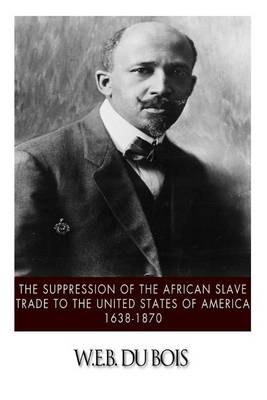Oxford W.E.B. Du Bois
2 total works
The Suppression of the African Slave Trade to the United States of America, 1638-1870
by W. E. B. Du Bois
Published 1 December 1965
This historical account of the transatlantic slave trade between Africa and the United States is filled with a wealth of records, details and analyses of its attempted suppression.
The various moral, economic and religious arguments against slavery were clear from the outset of the practice in the early 16th century. The ownership of a human life as an economic commodity was decried from religious circles from the earliest days as an immoral affront to basic human dignity. However the practice of gaining lifelong labor in exchange only for a basic degree of care meant slavery persisted for centuries across the New World as a lucrative endeavor.
The colonial United States would, from the early 17th century, receive many thousands of slaves from Africa. Many of the slaves transported were sent to work on plantations and farms which steadily spread across the warmer southern states of the nation. Others would do manual work on the docks, for instance moving goods in the fledgling trading colonies.
The various moral, economic and religious arguments against slavery were clear from the outset of the practice in the early 16th century. The ownership of a human life as an economic commodity was decried from religious circles from the earliest days as an immoral affront to basic human dignity. However the practice of gaining lifelong labor in exchange only for a basic degree of care meant slavery persisted for centuries across the New World as a lucrative endeavor.
The colonial United States would, from the early 17th century, receive many thousands of slaves from Africa. Many of the slaves transported were sent to work on plantations and farms which steadily spread across the warmer southern states of the nation. Others would do manual work on the docks, for instance moving goods in the fledgling trading colonies.

